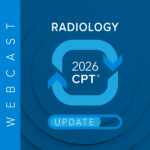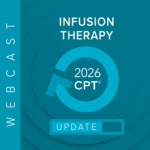Many plans charge a daily copayment, starting the first day, compared to deductibles charged by traditional Medicare plans.
Last fall, I reported on the rise of Medicare Advantage (MA) plans, most of which have added coverage for issues associated with the social determinants of health (SDoH). Of 62 million Medicare beneficiaries, over 24 million enrolled in MA plans by the end of 2020: roughly 40 percent. The Congressional Budget Office projects the trend to continue, with a rising share of all beneficiaries enrolled in such plans by 2030: almost 51 percent. Nine states have high penetration of Medicare Advantage enrollees, some over 40 percent: Alaska, Delaware, Illinois, Kentucky, Maryland, Michigan, New Jersey, West Virginia, and Wyoming.
Close to 20 percent of current beneficiaries are covered by group retiree plans offered by employers and unions. In these situations, employers or unions contract with insurers for Medicare to pay the insurer a fixed amount per enrollee and provide benefits covered by Medicare. The employer or union (and sometimes the retiree) may pay a premium for additional benefits or lower cost-sharing. UnitedHealthcare plans to support these beneficiaries through their Healthy at Home program, coming in January 2022. Created for group retiree MA plans, the program will provide access to benefits that address social needs. The program will emphasize keeping retirees healthy in their homes, and will be facilitated through employers and plan sponsors. The benefits encompass three resources that often top our list pertaining to the SDoH: nutritional sufficiency, transportation, and homecare. Specifically, the benefits will include:
Post-discharge meal delivery, including 28 meals (two meals per day for two weeks), available following any inpatient orskilled nursing facility(SNF) discharge for retirees when referred by a UnitedHealthcare advocate who will contact patients post-discharge;
Post-discharge transportation, including up to 12 one-way rides to and from medically related appointments and the pharmacy following every inpatient or SNF discharge; and
In-home personal care provided following all discharges – up to six hours’ worth. Retirees will receive assistance with daily living activities to support their recovery and follow-up care to reduce risk of hospital readmission.
Other Medicare Advantage plans are also on the move. Humana announced its $8.1 billion acquisition of the Kindred at Home program, a network of 43,000 caregivers serving 550,000 patients in 40 states. Emphasis will be placed on ensuring proactive care to address the SDoH, particularly for primary care, telehealth, and the ED. About 65 percent of Humana’s individual MA plan membership have access to Kindred at Home services.
In terms of market share for 2020, UnitedHealthcare and Humana accounted for 44 percent of all MA enrollees across the U.S.; Blue Cross Blue Shield (BCBS) affiliates (including Anthem BCBS plans) accounted for another 15 percent, and CVS Health, Kaiser Permanente, Centene, and Cigna comprised another 23 percent. We can expect further MA enhancements across the board. Remember, should MA enrollees require inpatient hospital stays, many of their plans charge a daily copayment, starting the first day, compared to deductibles charged by traditional Medicare plans. These can get costly for patient and provider alike. Extra benefits to keep them out of the hospital is a win for all!
Our recent Monitor Mondays survey asked listeners how much Medicare Advantage benefit enhancements would help their organization’s fiscal bottom line. The interesting results affirm that the verdict is still out on the promises and pitfalls of these plans; they can be viewed here.
Programming Note: Listen to Ellen Fink-Samnick’s live reporting of the social determinants of health (SDoH) every Monday during Monitor Mondays, 10 a.m. Eastern.













